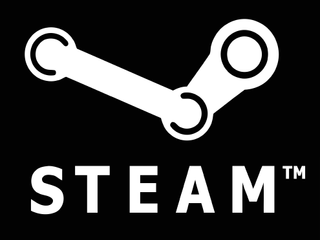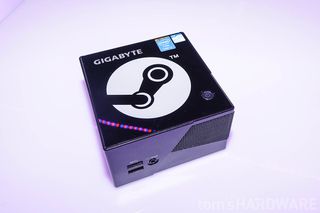What Valve Needs for Steam Machine to Beat Xbox One, PS4
Valve has made a mistake with the development of the Steam Machine, and here's why it's a big deal.

At CES Valve officially released its list of Steam Machine partners. The list consists of a total of 13 different manufacturers, including well-known brands such as Alienware and Gigabyte.
Gabe Newell of Valve said that "the first generation Steam Machines offers something for every gamer, which is a critical part of extending Steam into the living room. With over 3,000 games and more than 65 million gamers on Steam, it's important to offer gamers a variety of Steam Machines that allow them to select what makes the most sense for them." Personally, I disagree, and I'd like to tell you why I believe that this is a recipe for disaster. It's not that I disagree with the entire concept, because I actually like the idea; I just don't believe that it will work as well as it could without some changes.
One of the primary reasons why a lot of gamers will pick a console over a gaming PC is simplicity. I don't like generalizing, and while the below won't apply to everyone, it will to a large group of people. The attraction of a console is the simplicity of buying one, hooking it up to your TV, inserting the game disc, and you're pretty much set – that's it. None of those steps are difficult to make. Valve's recipe, on the other hand, is intended for openness, allowing gamers and retailers to choose what hardware platform to buy and sell. My question is why?
I foresee a number of problems with Valve's method. As it stands now, the only things that set a Steam Machine apart from a pre-assembled gaming PC is the Linux-based Steam OS, a controller, and (this one being up for debate) the form factor. Don't get me wrong; I love the openness and customizability as much as most of you, but this is not going to get console gamers to cross over to PC gaming.

In my opinion, the biggest problem with the Steam Machine is the fragmentation of the hardware platform. The first units have yet to come to shelves, and already there are more options for hardware to choose from than the choice of Xbox 360 or PlayStation 3 variants that have come out over the years since release. While there are a number of similarities between a lot of machines, none of the 13 Steam Machines have the same hardware platform, and a number of them are even customizable, making for even more options. This means that when a gamer goes to the store to buy a Steam Machine, he or she will have to face the same sales pitch as when buying a PC or a laptop. I have a number of non-tech savvy friends, and this decision is not one that they take lightly. For some, it can even be uncomfortable. Most console gamers simply buy their console of choice, hook it up, and don't look back. To make this 'console of choice' decision should be a simple process, and not a complicated one; if it is too complicated it will be too convenient to just opt for the Xbox or PlayStation and call it a day.
What Valve Needs To Do
Valve should make a reference hardware platform that all the Steam Machines should stick to. This includes a reference processor, a reference graphics card, and a set amount of memory. To control costs, manufacturers also shouldn't go above this reference hardware level. At this time, a nice setup might be an Intel Core i3 processor (or cost-equivalent AMD quad-core processor), a mid-tier graphics card such as either a GTX 760 or an R9 270, and 8 GB of memory. This way, customers can be assured of a solid performance level, and they don't have to worry over whether they chose the right model or not, and it will also allow all the machines to be priced not far from the Xbox One and PlayStation 4, and developers will also have a baseline specification to target.
Valve should also come out with a new reference specification every year, and if the Steam Machine platform gains a lot of popularity, ensure that this specification considers the best options across all AMD, Intel and Nvidia products. This would keep the Steam Machine still closely tied to innovations from the PC gaming industry. One might argue that consoles now have longer lifespans than ever, and so consumers may be put off by a new Steam Machine so soon after another. On the other than, mobile phone manufacturers are coming out with new models several times a year, and consumers don't seem to mind buying a new iPhone or Galaxy every couple of years. Gamers will still be able to use their 2014 Spec Steam Machine in 2016 or even 2017, only limiting the experience. Besides, this is one of the biggest attractions to PC gaming, staying up to date with the latest technology. Trade-in programs could also make the annual update a lot more feasible for a lot of users.
Stay On the Cutting Edge: Get the Tom's Hardware Newsletter
Get Tom's Hardware's best news and in-depth reviews, straight to your inbox.

Of course, manufacturers will still want to differentiate their products from the crowd, which is still very possible. A number of options would be different sizes of hard drives, optional SSDs, systems optimized for ultimate compactness at the cost of customizability or systems optimized for silent operation, cost-efficient systems, and more. Heck, let manufacturers market reliability with all-solid Japanese capacitors or stronger PCB designs. The average gamer can easily choose whether they want a silent system, a more compact system, a bigger hard drive, or the cheapest model that will get the job one, but they don't like to fuss over what CPU or GPU they have or how much RAM their consoles contain. Does the average gamer know (or care) how much RAM is in their Xbox or PlayStation, without looking at Wikipedia?
Put this into another perspective, Valve could approach Steam Machines like video cards: AMD and Nvidia make a reference design, which the manufacturers tweak slightly to differentiate their products. Due to this, anyone who buys a non-reference GTX 760, still has a 760, and will not be be negatively surprised by its performance. This system has been in place for a long time for graphics cards, and it seems to work just fine. Choosing a non-reference model of a particular graphics chip isn't all that hard a decision -- it's choosing which particular graphics chip to use in the first place which is the difficult part.
Valve's current path simply gives manufacturers an option to market their smaller pre-built gaming PCs as consoles, while this alternate system will bring a good middle ground between console gaming and PC gaming, and will give hesitant console gamers wanting to get into PC gaming a PC gaming experience with the convenience and certainty of a console. Deliver on that wish, and Valve might just find itself beating both Sony and Microsoft in the home gaming department, making PC gaming a definite champion once and for all. There is no point to offering gamers something that's already available: give them what they need to cross the bridge, rather than re-marketing what's on the other side. When a gamer wants a more high-end experience after a couple years of owning Steam Machines, they will still have a massive Steam library with games they'll want to keep expanding on when they decide to take the plunge and build or purchase a high-end gaming PC. To begin, some might upgrade their Steam Machines, which is very well possible since the hardware support is there and it is still an open platform.
If the Steam Machine continues down the path it is currently going, it will become a niche device, and this goes against what Valve is trying to accomplish -- bringing PC gaming to the living room for all gamers alike. So dear Valve, if you want the Steam Machine to gain popularity, don't force console gamers to make the same decisions that PC gamers make, because that is the reason why they bought a console in the first place.
Niels Broekhuijsen is a Contributing Writer for Tom's Hardware US. He reviews cases, water cooling and pc builds.
-
dragonfang18 Reminds me of my evolution class where a frog in transition from a tadpole is a bad swimmer with bulky legs and a bad frog with a cumbersome tail. Some things are just not meant to take on everything.Reply -
fyend Opinions are like assholes. Everyone has one and some people get paid to write theirs down.Reply -
Scionyde Sometimes I wonder if console gamers get offended when we keep saying that too many choices will confuse them, haha.The idea of too much choice being a bad thing - "The Paradox of Choice" - is an interesting one. I don't think it necessarily applies to everything, though. If you go into Best Buy, and go into the TV secion, there are many, many different options to choose from and yet people don't have a problem with making that choice. If something's important enough to the consumer, they'll make a choice one way or another. I think it will be up to marketing - the benefits of PC gaming over consoles need to be clearly communicated for people to consider the Steam Machines.Reply -
Murissokah I agree with the author that fragmentation is a serious issue. In addition to the points he made, I believe the non-tech savvy users like the idea that they can simply buy a console without worrying that some geek will later tell them they made a bad purchase, which is very likely with a PC. Buy a console and you will have the same as every other gamer on that platform.Reply
Maybe a mid ground between a fixed setup and an open hardware platform could work. Something like having three models (Steambox LE, Vanilla and XT), so developers could design their game settings to make use of each one.
Also, Valve maybe weary that locking the hardware platform now may do more harm than good, since a lot of people will probably try SteamOS on pre-existing hardware. -
jessterman21 AMEN! This is what thrilled me when Steam Machines were first detailed by Valve. I was so disappointed in the CES reveals, besides the iBuyPower and CyberPowerPC boxes. What Valve needs to do is what they originally said they would do with the "Good, Better, Best" tier system. A $300 PC that will play games on Low at 30fps, a $600 PC that will play games on Medium-High at 60fps, and a $1000 PC that will play almost everything on Ultra with light AA.Reply -
crazedaku I understand what the writer is getting at. In your Tv example, most users won't be disappointed by slight color issue, or only having 60hz vs 240hz. When it comes to Pc's, if you can't play a particular game because it is too weak, then that is a problem. The variety of choices and not knowing what will work for each game could deter people from purchasing or potentially create buyers remorse where the buyer never purchases that product again and even tells his/her friends not to purchase. Also, Steam OS is linux based which means only linux games will work on it, many potential buyers don't realize that their steam games won't work on their steam box because they weren't developed to work on linux. I see the same thing with cell phones. Many users don't understand why apps won't work on various cell phones, all they know is that it works on this phone and not that phone. My 2 cents.Reply -
Estix I think the acid test for whether the Steam Box initiative is working is basically this:Can a person buy, set up, and use a Steam Box with the same ease that a person could buy, set up, and use an XB1 or PS4? If you have to make too many decisions, or have to know too much, when buying it, you've failed number 1. If you have to deal with too many cables, too many (any, really) driver issues, or too much assembly of any kind, you've failed number 2. If you have to deal with games being incompatible with, or not running on the hardware/software, you've failed number 3.It's rough, oversimplified, and harsh, but that's what would be needed for most people to consider it a valid option, especially since it's competing against established platforms that can offer things like local multiplayer.Reply -
atikkur ReplySometimes I wonder if console gamers get offended when we keep saying that too many choices will confuse them, haha.The idea of too much choice being a bad thing - "The Paradox of Choice" - is an interesting one. I don't think it necessarily applies to everything, though. If you go into Best Buy, and go into the TV secion, there are many, many different options to choose from and yet people don't have a problem with making that choice. If something's important enough to the consumer, they'll make a choice one way or another. I think it will be up to marketing - the benefits of PC gaming over consoles need to be clearly communicated for people to consider the Steam Machines.
When you buy TV, you always guaranted to be able to watch the tv broadcast, regardles the tv you picked. When you buy pc or steam machine, if you picked too low on spec, you may not be able to play some games, or to experience as good as the game maker intended. So there is no guarantee here. The article says, the consumer has to be guaranted by the steam machine they buy, to enjoy without fuss, by some sort of baseline spec. Other choices without to worry to break the main function (playing games decently), is welcomed. -
bandrei the 1st target are the pc gamers, not afraid of buying a pc. console gamers are not in the first wave they will be confused, afraid at the beginig, but after getting more popularity console users can buy better "consoles" (steam machines). they must have in mind a pc gamer knows the market, very hard will go buying something more expensive, just because has some label on it. so the steam boxes should be equivalent in price with a custom build. also a pc gamer want to upgrade their rig, so steam boxes should be thermal and power good for a greater variaty of upgrades. the small design and the steam os can make feel like having a powerfull/superior console. my dream is games to be free from contrains of OS, console . Steam OS and Mantle can make this dream came true. i am pretty sure Valve will do it right with these steam machinesReply -
goodguy713 I think this is a bit of a stretch. this article basically states that people are bleeping idiots and cant tell the difference for them selves. Honestly I think the biggest selling point for a steam box is the option of upgrading it. I understand having a general base model level that performs at a certain level reguardless but also having the higher end models with exspansion in mind would be great for those who are more tech savy i realize there are a lot of people who know very little about computers or hardware but almost every one has used a computer at some point in their lives and I think that when given the choice in the matter they will make the right decisions. the fact of the matter right now is that while steam machines are great but this early in the cycle it might be a tuff sell but as the consoles get 2 or 3 years old and no new hardware specs come out then i think a steam machine would excel in that kind of a market its all about the games and the titles available. they need to stress the value of the machines over traditional game sales we all know how much value steam brings to the computer platform. that's the biggest selling point when you can buy a 60 dollar game for 40 or a 1 year old title for 5 dollars you cant get that kind of deal anywhere else short of second hand shops but they dont sell them that cheap either. plus you can never loose your content. there are a lot of selling points that this article really misses.Reply
Most Popular





